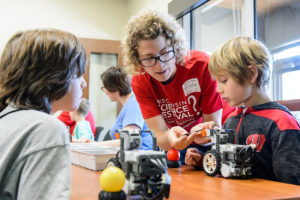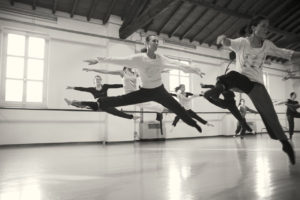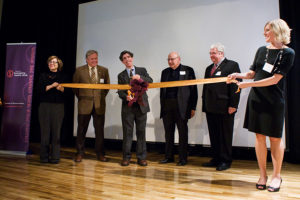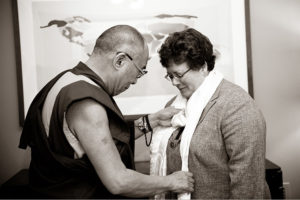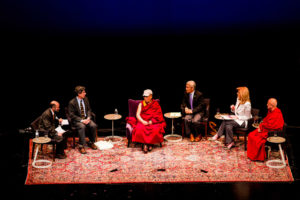Sometimes great ideas come from asking interesting questions and making connections with people who are completely different from you. Their life experiences, knowledge and wisdom, combined with your singular cache of experiences and talents, can spawn big ideas if all are willing and open to listening and participating.
Such an environment will take shape on campus June 7-8 at the “Big Learning Event: Powerful Conversations for the Future.” Held at the new Union South building, 1308 W. Dayton St., the Big Learning Event (BLE) will bring together some of the country’s brightest minds from disparate disciplines for conversation and listening. Consider it an idea lab. Or a mosh pit of minds, but with good manners.
“The Big Learning Event has big speakers, big ideas and in many ways, big opportunities,” says Don Schutt, director of the Office of Human Resource Development and member of the event’s design team. “We thought, what if we brought together some phenomenal minds to think about our current-day issues? And instead of anticipating what the audience might want to know from the speakers, to instead ask the speakers what’s on their minds, and then translate that to the needs of UW-Madison.”
True to that vision, BLE turns the traditional conference model on its head and poses just a few questions. For the speakers: What issues are on your minds? Why? For the university community: How might these issues affect how we work and adapt to change?
Big questions, sure, but attendees will arrive at answers with help from guest speakers. BLE organizers have gathered a mix of boundary-busting leaders and thinkers who are open to new ideas and approaches to learning: psychologists Mihaly Csikszentmihalyi and Richard Davidson, astronomer Derrick Pitts, higher education expert David Ward, management consultant Meg Wheatley, virologist Nathan Wolfe and visual artist Lily Yeh.
Throughout the event, the guest speakers will offer and reflect on their expertise while attendees can react, respond, pose questions and offer solutions. UW-Madison’s Patrick Sims and Kathy Cramer Walsh are event moderators.
The event structure includes a presentation from each speaker, facilitated conversations among the speakers and audience, concurrent in-depth breakout sessions with each speaker, and sessions that bring the groups together to explore and expand upon the key questions. BLE registrants will also be invited to participate in study groups in advance of the event. The human capital on campus is massive, and organizers believe BLE can be an incubator for creative systems and solutions.
The design team also anticipates big, tangible benefits. “We hope BLE will initiate creative thinking for interdisciplinary projects or grants, help us frame learning, and get us thinking about the university’s role in this community and society,” says Schutt. “People will also develop personal skills sets, such as leadership, approaches to learning and teaching, and processes for strategic impacts. They can take new ideas, ways of thinking and best practices back to their corner of the campus.”
Schutt says he can’t wait to see what will happen and is already agonizing over which breakout session to attend. He is confident the big thinking will lead to big learning and that patterns and themes will develop over the two days – precisely what is supposed to happen. “It is not surprising this is happening here. These kinds of conversations happen all over campus, but usually within disciplines or related fields,” says Schutt. “People need to be open to the experience; it is not going to be a structured classroom situation. The one distinguishing feature of the Big Learning Event is that it is not distinguishable.”
– Gwen Evans
